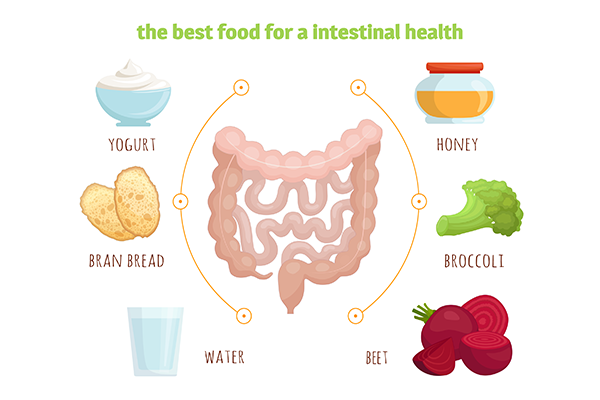
Gut health has become one of the most talked-about topics in recent years, and for good reason. Your gut is not just about digestion; it plays a vital role in immunity, metabolism, and even mood regulation. Scientists often refer to it as the body’s "second brain" due to its ability to communicate with the nervous system. When your gut is healthy, you feel lighter, energised, and more balanced. However, when things go wrong, symptoms such as bloating, acidity, constipation, and fatigue can easily disrupt your daily routine.
The good news? You can improve gut health naturally by making small but consistent changes in your lifestyle. Choosing the right gut health foods, following healthy eating habits, and managing stress all help restore balance in your digestive system.
Synopsis
Why Gut Health Matters
The gut is home to trillions of bacteria, fungi, and microbes collectively known as the gut microbiome. These microorganisms break down food, produce vitamins, regulate immunity, and keep harmful bacteria under control. A balanced gut microbiome promotes better digestion, reduces inflammation, and strengthens the immune system.
On the other hand, poor gut health can lead to issues such as:
-
Frequent indigestion and bloating.
-
Food intolerances.
-
Weakened immunity.
-
Mood swings and anxiety.
-
Skin problems like acne or eczema.
Maintaining gut health is therefore not just about digestion; it is central to your overall well-being.
Simple Tips to Improve Gut Health
Small lifestyle changes can go a long way in improving your gut health. Here are some practical tips you can start today.
-
Chew your food properly – digestion starts in the mouth. Chewing well reduces strain on the stomach and prevents bloating.
-
Stay hydrated – Drinking enough water helps regulate bowel movements and supports the digestive process.
-
Eat at regular intervals – Skipping meals or eating at odd times can disturb digestion. A consistent eating pattern keeps the gut rhythm stable.
-
Reduce processed foods – Packaged snacks and sugary drinks disrupt gut bacteria. Choose whole foods instead.
-
Manage stress—Meditation, deep breathing, and yoga can calm the gut-brain connection. Stress is one of the biggest hidden triggers of poor digestion.
-
Get quality sleep—your gut repairs itself while you rest. Poor sleep often leads to digestive discomfort the next day.
-
Exercise regularly—walking, yoga, and light workouts improve bowel movement and overall gut health.
Best Gut Health Foods
The right foods nourish your digestive system and help good bacteria thrive. Here’s a list of gut-friendly options you can add to your diet:
1. Probiotics
These are live “good bacteria” that improve digestion and restore balance in the gut.
-
Sources: yoghurt, kefir, kimchi, sauerkraut, miso, and tempeh.
2. Prebiotics
They act as food for probiotics, allowing them to multiply.
-
Sources: garlic, onions, bananas, asparagus, and oats.
3. High-Fibre Foods
Fibre helps regulate bowel movements and prevents constipation.
-
Sources: whole grains, beans, lentils, apples, carrots, and leafy greens.
4. Fermented Foods
Rich in natural cultures, fermented foods reduce bloating and improve digestion.
-
Examples: pickles, kombucha, and fermented soy.
5. Healthy Fats
Omega-3 fatty acids reduce gut inflammation and keep digestion smooth.
-
Sources: Olive oil, walnuts, chia seeds, and flaxseeds.
Including a mix of these gut health foods in your daily diet is one of the easiest ways to improve digestion naturally.

Habits That Support Better Digestion
Food is important, but lifestyle habits play an equally powerful role. To improve gut health, try incorporating these habits:
-
Eat mindfully – avoid distractions while eating. Paying attention helps you chew better and prevents overeating.
-
Limit alcohol and caffeine – Both can irritate the gut lining when consumed excessively.
-
Avoid unnecessary antibiotics – These medicines often wipe out healthy gut bacteria along with harmful ones.
-
Track trigger foods – Spicy, oily, or processed items can worsen symptoms for some people. Keep a food diary to notice patterns.
-
Add diversity to your diet – A variety of fruits, vegetables, grains, and proteins supports a diverse microbiome, which is key for gut health.
Real-Life Example
Take the case of Anjali, a 34-year-old working professional. She often experienced bloating, acidity, and fatigue after meals. Her diet included lots of packaged snacks and late-night dinners due to her work schedule. After consulting a nutritionist, she introduced probiotic-rich yoghurt, fibre-filled salads, and whole grains into her meals. She also reduced stress by practising yoga three times a week. Within a month, she noticed improved digestion, better sleep, and more energy. Her story shows how small dietary and lifestyle shifts can make a huge difference in gut health.
When to Seek Medical Help
Occasional digestive discomfort is common, but persistent symptoms should not be ignored. See our experienced gastroenterologist in Baner, Pune, if you experience:
-
Severe or prolonged abdominal pain.
-
Frequent diarrhoea or constipation.
-
Blood in stool.
-
Sudden food intolerances.
A gastroenterologist can evaluate the condition and suggest treatment or dietary adjustments.
Conclusion
Your gut is the foundation of your health. By eating the right gut health foods, practising mindful habits, and managing stress, you can improve gut health naturally. Remember, you don’t need drastic changes. Simple daily steps like staying hydrated, adding probiotics, and getting quality sleep can lead to long-lasting digestive wellness. A healthy gut not only keeps your stomach happy but also boosts your energy, mood, and immunity. Book an appointment today!
FAQ's
Bloating, gas, irregular bowel movements, constant fatigue, and food intolerances are some of the early warning signs.
Bananas, apples, papaya, and berries are excellent as they are rich in fibre and prebiotics.
Yes, stress disrupts the gut-brain connection, slows down digestion, and can cause constipation or diarrhoea.
With a balanced diet, probiotics, and healthy habits, many people notice improvements in 2–4 weeks.
Not for everyone. Many people can improve gut health naturally with probiotic foods, but supplements may be useful for those with specific gut conditions.






















 5 Min Read
5 Min Read


















